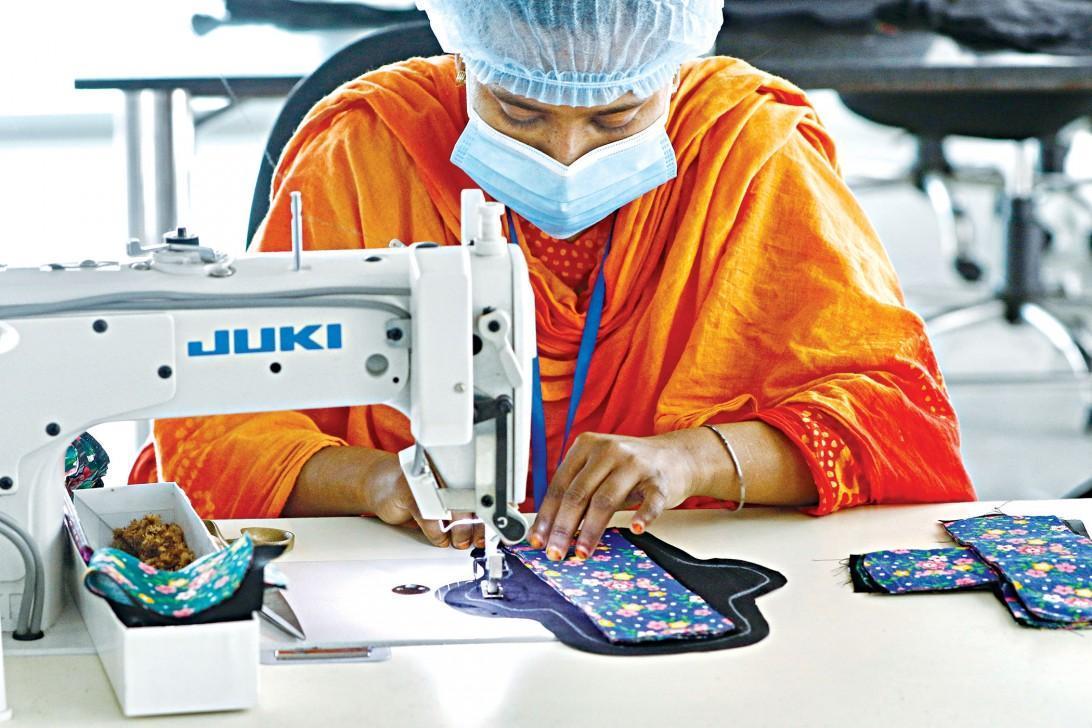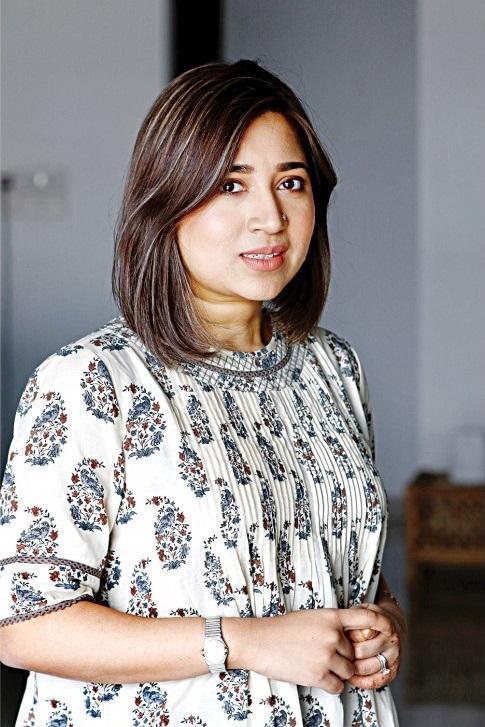Shaathi Foundation: Promoting eco-friendly Menstrual Hygiene
In August 2020 barrister Mifrah Zahir founded Shaathi Foundation to empower young women and girls by providing clean, safe, and locally produced reusable fabric pads.
Designed especially for underprivileged women who cannot afford sanitary pads at commercial pricing, the foundation aims to address taboos related to menstrual hygiene by training women in how to make washable and affordable sanitary pads.
“Forty one percent of girls in Bangladesh are reported[ly] missing school because of menstruation. We aim to help keep girls in school. Proper menstrual health management is important for promoting gender equity and ensuring that women reach their full potential, which is critical to the fulfilment of the Sustainable Development Goals,” shares Mifrah, stressing on the need to challenge the taboos about discussing menstrual hygiene.
To combat this problem, Shaathi launched the Menstrual Health and Hygiene Education (MHHE) programme, through which women can access support and information, and learn how to prepare for their menstrual cycles.
“But it is a challenge,” Mifrah admits, “as most underprivileged groups have grown up with misconceptions about the topic.”
Shaathi’s cloth pads come in three forms: foldable, overnight foldable, and belt, all designed with a stay-dry top layer, ultra-absorbent core layers, and an anti-leak security layer. They provide effective protection for six to eight months and come with clear instructions in both Bangla and English.
Other activities of Shaathi Foundation:
The foundation’s first campaign, “Let’s Start the Conversation about Menstruation”, initiated a discussion about menstrual health and hygiene practices among 50 adolescent girls in an all-girls orphanage in Mohammadpur, in partnership with Rights and Sight for Children.
In association with Labaid Hospital and East Coast Group, Shaathi hosted its first menstrual health camp, “Safe2Bleed”, on International Women’s Day this year in the Korail and Rayerbazaar slums for 200 underprivileged women and girls. They also collaborated with Volunteer for Bangladesh of JAAGO Foundation to conduct surveys in Dhaka’s Rayerbazar and Korail slums, as well as in Narayanganj and Gopalganj, to assess how much the women and girls knew about menstrual hygiene management.
All events followed strict safety protocols required by the pandemic, including cleaning the premises and mandating the wearing of masks. “During our workshops, we only allowed 15 individuals in each room,” Mifrah shares.
The foundation’s forthcoming countrywide campaign, “Let’s Start the Conversation about Menstruation”, will focus on debunking myths about menstruation and increasing self-esteem in young girls to have open discussions about menstrual hygiene.
Shaathi has also developed a curriculum both in English and Bangla, that contains lessons on topics such as vaginal anatomy, the process of menstruation, management of menstruation in a hygienic way, foods girls should consume and how to combat the myths and superstitions related to periods.
“Currently, we are just waiting for schools to reopen,” said Barrister Zahir.
Mifrah also plans to open sewing centres across Bangladesh to allow women from low-income families to sew pads and sell them in their respective communities.
Source: The Daily Star
Author: Ashley Shoptorshi Samaddar
Photos: Sheikh Mehedi Morshed



